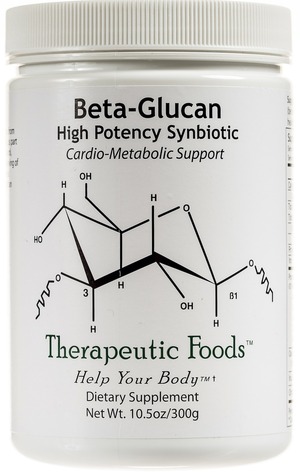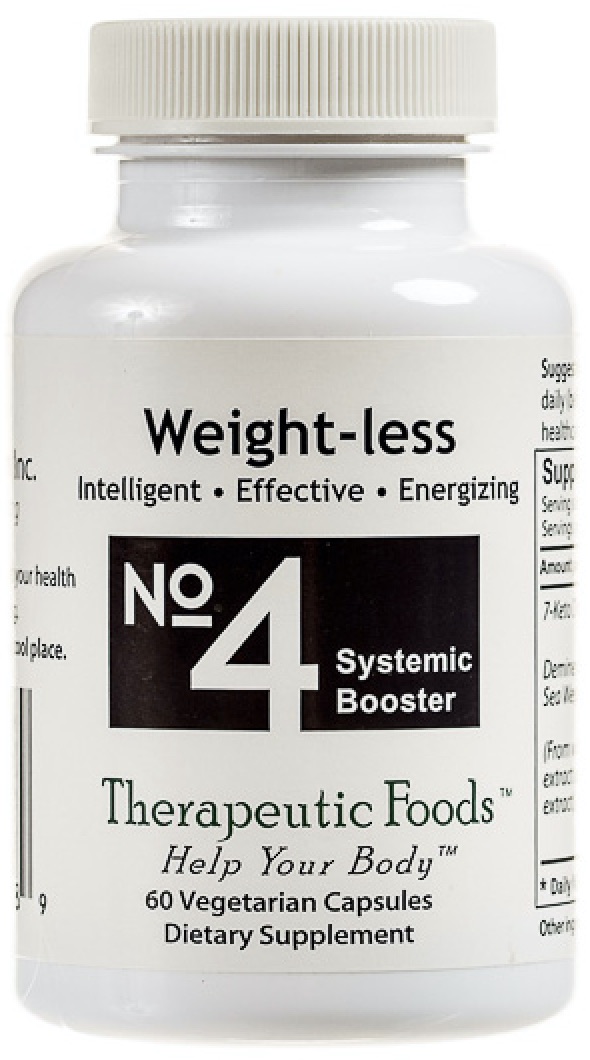Care For Your Heart
Dear Friends
Metabolic Syndrome is considered the leading cause of Heart Disease, the number one killer in the United States.
Three of our Therapeutic Food Supplements are designed with intelligent ingredients that are shown in research to support and help reverse both heart disease and the different conditions associated with metabolic syndrome: Beta Glucan High Potency Synbiotic, Weight-less Systemic Booster, and Organic Chlorella.
- Beta Glucan High Potency Synbiotic– 1 heaping tbl twice daily before two largest meals.
- Weight-less: NO. 4 Systemic Booster– 2 capsules one-half hour before meals. A must do before a high carb meal or snack.
- Organic Chlorella– 4 tablets taken with meals.
Food Science
Metabolic Syndrome is a disorder affecting approximately one-quarter of the American population. It is in fact considered a worldwide epidemic (NIH: NHLBI, 2015).
The risk factors for Metabolic Syndrome are: Abdominal obesity, Atherogenic dyslipidemia, Raised blood pressure, Insulin resistance, Pro-inflammatory state, and Pro-thrombotic state (McCullough 2011, Grundy 2004).

The Beta Glucan High Potency Synbiotic contains powerful soluble and insoluble fibers and pedigreed strains of probiotics.
Multitude research articles strongly indicate that as dietary fiber goes up the risk of Metabolic Syndrome goes down (Grooms, 2013).
A healthy gut microbiome supports the maintenance of a healthy GI tract membrane barrier function. Cani et al. (2008) found that bacterial lipopolysaccharide (LPS) levels set the tone of insulin sensitivity and the onset of obesity and diabetes. An increased gut permeability allowed for the passage of LPS through the gut wall into the systemic circulation. Thus, lowering plasma LPS concentration could be a potent strategy for the control of metabolic diseases.
Cani et al. (2007, 2007a, 2008, 2009) demonstrated that adding soluble fibers to our daily diet, such as inulin and oat bran beta glucan (containing oligofructose chains found in the Beta Glucan Synbiotic), stimulates the growth of Bifidobacteria sp., which caused a reduction in gut permeability, thereby reducing the levels of LPS systemically, which initiates weight loss, and reduction of metabolic disorders.

Weight-less is a smart metabolic booster formula – the mix supports weight loss and effectively boosting energy levels. Weight-less contains wild brown seaweed extracts from kelp and bladderwrack as well as 7-Keto DHEA. Brown seaweeds are shown in research to lower the glycemic load of complex and simple carbohydrates for better insulin management, as well as offer a power-filled phenolic activity for antioxidant and anti-inflammation effect (Roy et al., 2011). The 7-Keto has been used for many years to turn on fat burning mechanism and offer an effective and safe way to lose weight (Bobyleva et al., 1997).
Together, Weight-less promotes a sustained energy level throughout the day as it modulates carbohydrate digestion and absorption for better weight management and metabolic health (Gabbia et al., 2017; Catarino et al., 2017).

Organic Chlorella– New studies show that Chlorella supports reduction of body fat, improves fat and glucose metabolism, decrease weight, and reduce the risk factors involved with Metabolic Disease.
Mizoguchi et al. (2008) in their research, Nutrigenomic studies of effects of Chlorella on subjects with high-risk factors for lifestyle-related disease, demonstrated that Chlorella intake, in 17 subjects with high risk factors for lifestyle-related disease (obesity, diabetes or hyperlipidemia) and 17 healthy subjects, results in noticeable reductions in body fat percentage, total blood serum cholesterol, and fasting blood glucose levels.
Their research confirmed that Chlorella intake brings about improvements in both fat metabolism and glucose metabolism. The expression of genes involved in the insulin signaling pathway were also affected by Chlorella vulgaris intake, especially those related to glucose uptake in tissue, providing support for the observation that Chlorella lowers blood glucose levels.
Vecina et al.’s (2014), Chlorella modulates insulin signaling pathway and prevents high-fat-diet- induces insulin resistance in mice, research goal was to evaluate the prophylactic effect Chlorella vulgaris on body weight, lipid profile, blood glucose and insulin signaling in liver, skeletal muscle and adipose tissue of diet-induced obese mice.
Their conclusion was that C. vulgaris supplementation (Chlorella) could be considered as an adjunctive therapy to decrease weight and improve glycemic status and reducing hs-CRP as well as improving liver function in patients with NAFLD.
References:
- Bobyleva, V., Bellei, M., Kneer, N., & Lardy, H. (1997). The effects of the ergosteroid 7-oxo-dehydroepiandrosterone on mitochondrial membrane potential: possible relationship to thermogenesis. Archives of biochemistry and biophysics, 341(1), 122-128. https://doi.org/10.1006/abbi.1997.9955
- Cani et al. (2009). Changes in gut microbiota control inflammation in obese mice through a mechanism involving GLP-2 driven improvement of gut permeability. Gut; 58(8): 1091-1103
-
Cani et al. (2008). Changes in gut microbiota control metabolic endotoxemia-induced inflammation in high-fat induced obesity and diabetes in mice, Diabetes; 57:1470-8.
Cani et al. (2007). Metabolic endotoxemia initiates obesity and insulin resistance. Diabetes; 56:1761-72. - Cani et al. (2007a). Selective increases of Bifidobacteria in gut microflora improve high-fat-diet-induced diabetes in mice through a mechanism associated with endotoxaemia. Diabetologia; 50: 2374-83.
- Catarino, M. D., Silva, A., & Cardoso, S. M. (2017). Fucaceae: A source of bioactive phlorotannins. International journal of molecular sciences, 18(6), 1327. Article
- Gabbia, D., Dall’Acqua, S., Di Gangi, I. M., Bogialli, S., Caputi, V., Albertoni, L., … & De Martin, S. (2017). The Phytocomplex from Fucus vesiculosus and Ascophyllum nodosum Controls Postprandial Plasma Glucose Levels: An In Vitro and In Vivo Study in a Mouse Model of NASH. Marine drugs, 15(2), 41. DOI:10.3390/md15020041
- Grooms et al. (2013). Dietary Fiber Intake and Cardiometablic Risk among US Adults: NHANES 1999-2010. Am J Med; 126(12): 1059-1067.
- Grundy, S. M. (2004). Obesity, metabolic syndrome, and cardiovascular disease. The Journal of Clinical Endocrinology & Metabolism, 89(6), 2595-2600.
- Mizoguchi et al. (2008). Nutrigenomic studies of effects of Chlorella on subjects with high-risk factors for lifestyle-related disease. J Med Food; 11(3): 395-404.
- Roy, M. C., Anguenot, R., Fillion, C., Beaulieu, M., Bérubé, J., & Richard, D. (2011). Effect of a commercially-available algal phlorotannins extract on digestive enzymes and carbohydrate absorption in vivo. Food research international, 44(9), 3026-3029. https://doi.org/10.1016/j.foodres.2011.07.023
- Vecina et al. (2014). Chlorella modulate insulin signaling pathway and prevents high-fat diet–induced insulin resistance in mice. Life Sci; 95(1): 45-52.
- Whaley-Connell, A., McCullough, P. A., & Sowers, J. R. (2011). The role of oxidative stress in the metabolic syndrome. Reviews in cardiovascular medicine, 12(1), 21-29.
Sincerely yours,
Seann
We have developed our products based on scientific research and/or the practical experience of many healthcare practitioners. There is a growing body of literature on food based nutrition and supplements and their application in support of our health. Please use our products under the advisement of your doctor.Green Facts:
 Choosing a healthy diet: Research studies link the emerging global pattern of metabolic syndrome and weight gain to the prevalence of Westernized diet of daily meats, dairy, eggs, simple and processed carbohydrates, and too much sugar (Chai et al., 2017; Azadbakht & Esmaillzadeh, 2009; Lutsey et al., 2008). Although there are conflicting views on dietary guidelines, many scientists and health organizations agree that a focus on whole food plant-based diet is the healthiest guideline for metabolic syndrome and weight loss (Yokoyama et al., 2017; Satija et al., 2017; Kahleova et al., 2017; Hever et al., 2017; Turner et al., 2017; UN Report, 2016; Wang et al., 2015; Tilman & Clark, 2014; WHO/FAO, 2003).* Choosing a healthy diet: Research studies link the emerging global pattern of metabolic syndrome and weight gain to the prevalence of Westernized diet of daily meats, dairy, eggs, simple and processed carbohydrates, and too much sugar (Chai et al., 2017; Azadbakht & Esmaillzadeh, 2009; Lutsey et al., 2008). Although there are conflicting views on dietary guidelines, many scientists and health organizations agree that a focus on whole food plant-based diet is the healthiest guideline for metabolic syndrome and weight loss (Yokoyama et al., 2017; Satija et al., 2017; Kahleova et al., 2017; Hever et al., 2017; Turner et al., 2017; UN Report, 2016; Wang et al., 2015; Tilman & Clark, 2014; WHO/FAO, 2003).*
The Plates, Pyramids, Planet report, compiled in collaboration with the Food Climate Research Network (FCRN) at the University of Oxford, concludes that a plant-based diet has many advantages for health and the environment (UN Report, 2016).* The type and nature of carbohydrates that improve our metabolic health (obesity, cardiovascular, and diabetes) are comprised of whole plants with fiber (Wright et al., 2017). Whereas low carbs diets with high fat content is shown to increase metabolic syndrome (Lamont et al., 2017; UN Report, 2016).* A diet that is 80-90% whole food plant-based is highly recommeded by many health organizations and medical universities around the world. |
|
©2005 – 2017 BioImmersion Inc. All Rights Reserved
|